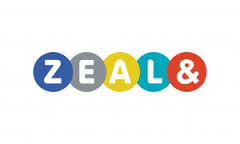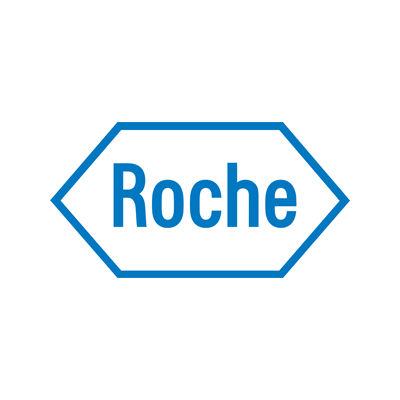预约演示
更新于:2025-08-23
Petrelintide
更新于:2025-08-23
概要
基本信息
非在研机构- |
最高研发阶段临床2期 |
首次获批日期- |
最高研发阶段(中国)- |
特殊审评- |
登录后查看时间轴
结构/序列
Sequence Code 1177483782

来源: *****
关联
7
项与 Petrelintide 相关的临床试验NCT06926842
A Randomized, Double-Blind, Phase 2 Trial of Once-Weekly Petrelintide Compared With Placebo in Participants With Overweight or Obesity and Type 2 Diabetes
The main purpose of this study is to investigate efficacy and safety of three doses of petrelintide versus placebo in participants with overweight or obesity and type 2 diabetes.
开始日期2025-04-22 |
申办/合作机构  Zealand Pharma A/S Zealand Pharma A/S [+1] |
NCT07076030
Pharmacokinetics of Petrelintide Following Administration to Participants With Impaired Renal Function
This clinical research study is testing the study compound petrelintide that is being developed for the weight management in people with obesity or overweight with comorbidities or related diseases.
The aim of this clinical research study is to investigate whether the effects of petrelintide will be different in people with normal kidney function compared to people with impaired kidney function.
The aim of this clinical research study is to investigate whether the effects of petrelintide will be different in people with normal kidney function compared to people with impaired kidney function.
开始日期2025-04-15 |
申办/合作机构  Zealand Pharma A/S Zealand Pharma A/S [+1] |
CTIS2024-518124-77-00
- ZP8396-24059
开始日期2025-03-26 |
申办/合作机构 |
100 项与 Petrelintide 相关的临床结果
登录后查看更多信息
100 项与 Petrelintide 相关的转化医学
登录后查看更多信息
100 项与 Petrelintide 相关的专利(医药)
登录后查看更多信息
1
项与 Petrelintide 相关的文献(医药)2025-07-24·JOURNAL OF MEDICINAL CHEMISTRY
Discovery of BGM1812, a Novel Dual Amylin and Calcitonin Receptor Agonist for Obesity Treatment
Article
作者: Song, Yunsong ; Zheng, Zheng ; Yuan, Jiandong ; Li, Xionghao ; Ding, Haifeng ; Zhang, Zhoudong ; Huang, Yangqing ; Zong, Leilei ; Liu, Wenlang ; Li, Huanqiu ; Wang, Zitong ; Feng, Xiangyang ; Shen, Xinyi ; Jiang, Xiaohui ; Jia, Jie
Parallel activation of the calcitonin receptor (CTR) and amylin receptor (AMYR) is considered a more effective weight-loss strategy. Although the novel dual amylin and calcitonin receptor agonist (DACRA), petrelintide, is currently undergoing phase II clinical trials, its agonistic activity remains insufficient compared with natural agonists. Further optimization of the agonistic capabilities of petrelintide is an attractive strategy for developing DACRAs. Due to the lack of structure-activity relationship (SAR) and target binding information, a step-by-step process involving three rounds of modifications was performed guided by structure-based drug design and molecular dynamics (MD) simulations. Two successful methylation strategies led to the identification of the more efficient novel DACRA, BGM1812, with excellent performance in terms of half-life, stability, and solubility. In both in vivo and in vitro studies, BGM1812 showed significantly enhanced efficacy. This finding provides valuable insights into the SAR of petrelintide and highlights the potential of BGM1812 as a promising obesity drug candidate.
88
项与 Petrelintide 相关的新闻(医药)2025-07-31
·医药地理
近日,美国《制药经理人》(《Pharmaceutical Executive》)杂志公布了其评选出的2025年全球制药公司50强。该榜单依据各个制药企业2024年度的处方药在全球的销售收入进行排名,更直观体现各个企业制药业务的硬实力。在本文所涉及的不同年度的排名或销售额中,2025年代表的是2024年度,2024年代表的是2023年度,依此类推。《制药经理人》已连续25次推出Top 50榜单。2025年TOP10名单有一些变化,诺和诺德因司美格鲁肽的大卖而首次进入前十,排第10位,而葛兰素史克则跌出了前十。TOP10排位也相应变化,2025年,强生和艾伯维仍排在榜首前两位,处方药销售额分别上升了4.3%和3.3%。默克、罗氏和辉瑞的排名都上升一位分列第3、4、5位,默克处方药销售额增长6.8%,其“台柱子” Keytruda在2025年销售额增长17.9%,以294.82亿美元保持新“药王”宝座;罗氏和辉瑞的处方药销售额分别上升了6.8%和7.8%。阿斯利康排名上升两位至第6位,处方药销售额增长16.3%。诺华排名下降了四位至第7位,处方药销售额下降了4.4%,这前七家的销售额都超过了500亿美元,比2024年多了3家。施贵宝排名下降了一位至第8位,处方药销售额增长7.7%,赛诺菲排名没变,仍在第9位,处方药销售额增长8.4%。诺和诺德排在第10位,处方药销售额大涨24.9%,主要是其重磅品种司美格鲁肽的“功劳”。Top 10榜单中有9家销售额同比上升、1家同比下降。从研发费用投入的绝对值来看,美国默克上升两位至第1,为178.6亿美元,为历年来各跨国药企研发投入之最,同比增长39.5%。强生的研发费用由第1降为第2,为170.3亿美元,同比增长15.1%,这两家都是连续4年研发投入超过100亿美元。罗氏后退一位排第3,为148.2亿美元,同比略增0.5%,其连续6年研发投入超过100亿美元。阿斯利康上升一位至第4,为122.1亿美元,同比增长18.9%。礼来排第5,研发费用为109.9亿美元,同比增长18.0%。辉瑞排第6,为108.2亿美元,同比略增了1.3%,其研发投入也是连续4年超过100亿美元。这6家企业的研发费用都超过了100亿美元,比2024年多增加了一名。百时美施贵宝排第7,为97.8亿美元,同比增长7.4%。诺华排第8,为93.0亿美元,同比增长8.2%,这两家的研发费用超过了90亿美元。Top 10企业的研发费用投入都同比上升。研发费用投入的统计一般都是公司的全部业务的研发费用合计,很难区分处方药、OTC药和消费保健品、医疗器械等的研发费用。部分公司的研发费用投入相比2024年的费用有大幅变动,估计与其财务核算和账务处理有关。50强中有45家公司销售额取得了增长(含3个新进公司),增幅最大的是礼来,销售额增长88.5亿美元,其次是诺和诺德,销售额增加了84.0亿美元,主要是这两家拥有的GLP-1产品的热销,使得诺和诺德和礼来排名都提升一位。50强中只有5家公司的销售额同比下降,降幅最大的是莫德纳,因上市产品新冠疫苗Spikevax的大降,故其处方药销售额下降了34.5亿美元。50强中有32个公司的研发投入有增长,12个公司研发投入有降低,4个未有研发投入数据,3个新进入公司(其中1个新进公司也未有研发投入数据)未有可比数据。从每个公司的前三畅销药可以推算出有些公司还是比较专注在某个治疗领域,如吉利德聚焦在病毒感染,诺和诺德及礼来专注在糖尿病(包括减肥),渤健重点聚焦在多发性硬化症,澳大利亚CSL重点在人血蛋白,福泰制药专注在囊性纤维化,再生元重点在眼底黄斑变性,较多企业如渤健、福泰制药和再生元等在罕见病领域有特长。2024年度是GLP-1药物大幅增长和新冠疫苗大幅下降的一个年度,2025年全球最畅销药物还是默克的可瑞达(帕博利珠单抗),虽然是全球第2个批准的PD-1/PD-L1药物,但其销售额为294.8亿美元,接近300亿美元,已连续三年突破200亿美元,占默克处方药销售额的54.3%,已超过“一半江山”,比2024年的250.1亿美元又增长17.9%,销售额是全球首个上市的PD-1/PD-L1药物施贵宝欧狄沃(纳武利尤单抗)的3.2倍,后者销售额为93.0亿美元,2025年同比只增长3.3%。排名第2的应该是诺和诺德的司美格鲁肽,把注射降糖版Ozempic、减肥版Wegovy和口服降糖版Rybelsus三者相加,销售额为292.8亿美元,同比增长38.3%,占诺和诺德处方药销售额的69.5%,占比接近七成。赛诺菲的达必妥(度普利尤单抗)位居第3,2025年销售额是141.4亿美元,同比增长22.0%,是自身免疫疾病药物的排头兵。排名第4的是吉利德的必妥维(比克替拉韦+恩曲他滨+丙酚替诺福韦),销售额为118.50亿美元,同比增长13.3%,是治疗艾滋病药物的王牌。排名第5的是施贵宝的艾乐妥(阿哌沙班),其销售额为133.3亿美元,同比增长9.2%,成为全球口服抗凝剂市场的领导者。排名第6的是艾伯维治疗斑块型银屑病的利生奇珠单抗,销售额为117.2亿美元,同比增长50.9%。排名第7的是强生的兆珂(达雷妥尤单抗),销售额为116.7亿美元,同比增长19.8%。排名第8的是礼来的GLP-1药物穆峰达(替尔泊肽),销售额为115.4亿美元,同比大幅增长1.2倍。排名第9的是强生的喜达诺(乌司奴单抗),销售额为103.6亿美元,同比下降4.6%。排名第10 的是福泰的Trikafta,销售额为102.4亿美元,同比增长14.5%。单一厂家药物排名前10名都超过了100亿美元,其中2个准300亿美元级、8个100亿美元级。《Pharmaceutical Executive》也提到,随着GLP-1等药物的持续大幅增长,证明了治疗热点在不断地调整和转型,榜单上的公司也在进行重排,默克的可瑞达(帕博利珠单抗)以微弱优势保住了“药王”称号。如果将司美格鲁肽看作整体产品,综合起来,明年它的销售额将极有可能超过可瑞达(帕博利珠单抗)而成为“新药王”。在并购和技术交易方面,2024年和2025年上半年,50强企业尤其是TOP10更是频频出手,2024年5月,强生宣布以131亿美元完成了对血管内碎石(IVL)技术制造商Shockwave Medical的收购。2025年4月,强生宣布完成对Intra-Cellular Therapies的收购,交易金额高达146亿美元,涉及已上市药物Caplyta(卢美哌隆),靶点为5-HT2R和D2R,属精神科领域,另有多个处于临床的研发管线。2025年2月,艾伯维授权引进Xilio Therapeutics:交易金额为21.52亿美元,涉及处于临床前阶段的多款药物,靶点为生物及三特异性抗体,属肿瘤领域。2025年3月,艾伯维以22.25亿美元引进Gubra的GUB014295的交易,GUB014295为胰岛淀粉样肽(amylin)类似物,显示艾伯维也在进入减肥药市场。2025年3月,罗氏授权引进Zealand Pharma的Petrelintide,交易金额为52.5亿美元,该产品处于2b期临床,靶点为GLP-1,属代谢性疾病领域。显示罗氏也在进入减肥药市场,证明了代谢性疾病领域的热度。2025年3月,阿斯利康授权引进Syneron Bio(中国元思生肽)的创新口服大环肽药物:交易金额为34.75亿美元,涉及处于临床前阶段的未披露药物,属于代谢和免疫炎症(I&I)领域。2025年2月,诺华收购Anthos Therapeutics,交易金额为30.75亿美元,涉及处于3期临床的Abelacimab,靶点为FXI和FXla,属心血管领域领域。而在2024年12月,诺华以10亿美元预付款获得PTC Therapeutics用于治疗亨廷顿舞蹈症(HD)的HTT mRNA剪接调节剂PTC518的授权,诺华还承诺在达到里程碑时再支付19亿美元。2025年6月,百时美施贵宝以15亿美元的预付款和潜在总金额超90亿美元签署了一项许可协议,获得了BioNTech开发的靶向PD-L1与VEGF的双特异性抗体BNT327。BNT327通过同时阻断免疫检查点和血管生成通路,实现协同抗肿瘤作用。而BNT327来自于BioNTech于2023年全资收购的中国生物公司普米斯。2025年6月,赛诺菲宣布以约95亿美元的潜在总金额收购美国生物药企蓝图医药(Blueprint Medicines),蓝图医药是专注于罕见免疫疾病——系统性肥大细胞增多症(SM)及其他KIT驱动疾病的美国上市公司,此次收购将增强赛诺菲在罕见疾病和免疫学的竞争力。2025年6月,礼来收购Scorpion Therapeutics,交易金额为25亿美元,获得PI3Kα抑制剂STX-478,处于1/2期临床,强化其肿瘤靶向治疗布局。2025年3月,礼来宣布与Magnet Biomedicine开展合作,共同推进新一代分子胶技术的开发,合作协议总金额为12.9亿美元,涉及处于发现阶段的未披露药物,属肿瘤领域。2025年4月,德国默克收购Springworks:交易金额为39亿美元,获得已上市的γ-分泌酶抑制剂Ogsiveo,补充其罕见病与肿瘤管线。上述并购交易多数涉及肿瘤、代谢疾病、精神健康等核心治疗领域,反映出跨国药企通过并购加速管线扩充和市场占位的战略趋势。肿瘤领域仍是并购核心,聚集在双特异性抗体和抗体-药物偶联物(ADCs),而蛋白质降解剂正成为讨论的一大热点。而代谢性疾病领域,特别是肥胖症治疗市场,在2025年继续成为医药巨头争夺的焦点。上述这些兼并和交易将会影响2025年度及今后的50强榜单的排名。2025年的医药并购浪潮不仅限于传统的小分子和生物药领域,治疗方式的创新同样催生了一系列重大交易。2025年3月,百时美施贵宝以2.86亿美元收购2seventy bio获取BCMA导向的转基因自体T细胞免疫疗法Abecma(idecabtagene vicleucel)的技术,用于治疗多发性骨髓瘤,以巩固其在细胞治疗领域的地位。2025年3月,阿斯利康与Alteogen达成两项价值13.5亿美元的皮下注射制剂合作,Alteogen的ALT-B4是一种新型重组人透明质酸酶,可将静脉注射药物改为皮下注射,大大提高患者用药便利性。2025年3月,阿斯利康以10亿美元收购EsoBiotec布局体内细胞疗法,通过在患者体内直接对免疫细胞进行重编程来治疗癌症。EsoBiotec的工程纳米抗体慢病毒(ENaBL)平台可以在几分钟内完成治疗过程,而非传统细胞疗法需要的数周时间。这些交易反映了医药行业对下一代治疗技术的高度关注。另外,中国药企对外授权市场升温。2025年7月,恒瑞医药发布的一纸合作协议:公司将HRS-9821项目的全球独家权利,以及至多11个项目的独家许可选择权,有偿授权给葛兰素史克。根据协议,葛兰素史克将向恒瑞支付5亿美元首付款,若所有项目均行使选择权且达成里程碑,恒瑞医药将有资格获得未来基于成功开发、注册和销售里程碑付款的潜在总金额约120亿美元;此外,还将有权向GSK收取相应的分梯度的销售提成。HRS-9821是一款潜在的同类最佳PDE3/4抑制剂,目前处于临床开发阶段,用于治疗慢性阻塞性肺病(COPD),作为辅助维持治疗,且不受既往治疗方案限制。2025年3月,恒瑞医药与美国默克达成HRS-5346授权协议,潜在价值19.7亿美元,HRS-534是一种研究性口服脂蛋白(a)[Lp(a)]抑制剂,针对与Lp(a)水平升高相关的心血管疾病,具有成为"first-in-class"药物的潜力。2025年4月,恒瑞医药又将新型口服小分子促性腺激素释放激素(GnRH)受体拮抗剂SHR7280在中国大陆地区的独家商业化权益授权给德国默克,收取1500万欧元的首付款。2025年5月,辉瑞与中国生物科技公司三生制药达成60.5亿美元许可协议,辉瑞将支付12.5亿美元“不可退还且不可抵扣”的首付款、最高可达48亿美元的开发、监管批准和销售里程碑付款,以及根据授权地区产品销售额计算得到的两位数百分比的梯度销售分成。该独家合作协议涉及SSGJ-707的开发、生产和商业化,SSGJ-707是一种针对PD-1和VEGF的双特异性抗体,目前正在中国进行多项临床试验,用于治疗非小细胞肺癌、转移性结直肠癌和妇科肿瘤。2025年2月,石药集团与Radiance Biopharma达成合作,后者获得重组抗人类受体酪氨酸激酶样孤儿受体1(ROR1)抗体偶联药物SYS6005欧美等地区的独家开发和商业化权利,潜在总金额高达12.4亿美元。SYS6005是一种靶向ROR1的ADC药物,通过与肿瘤细胞表面的ROR1受体结合,利用细胞内吞机制进入细胞内部释放毒素杀伤肿瘤细胞。同时2025年5月,石药集团宣布与Cipla USA,Inc.签订商业化订立独家许可协议,后者可获得伊立替康脂质体注射液在美国的商业化许可,潜在总金额高达10.65亿美元。2025年1月,中国启光德健与美国Biohaven、韩国AimedBio达成的超130亿美元合作,内容包括启光德健同类首创ADC药物GQ1011的全球开发与商业化独家授权,以及创新生物偶联核心平台技术的授权许可。GQ1011是一种新型靶向FGFR3的ADC,使用智能连接酶依赖性偶联(iLDC)技术与创新的拓扑异构酶I抑制剂(TopoIx)偶联,在膀胱癌、头颈部鳞状细胞癌和胶质母细胞瘤等适应症中表现出很显著的抗肿瘤活性。上述交易表明中国创新药企的国际化进程进入新阶段。这些交易不仅金额创下新高,更反映了全球市场对中国创新药的认可度不断提升。在仿制药方面,Viatris(晖致)在2025年的榜单中下降了一位至第19位,其销售额下降了4.6%,保住了全球仿制药领头羊的地位。梯瓦2025年销售额上升了8.0%,排名维持在第20位,两者的销售额差距在拉近。从诺华分离出来的仿制药企业山德士第二年进入50强榜单,排名下降一位至第24位,销售额超过了100亿美元,这前三家排名相近。仿制药业务为主的企业美国的欧加隆、印度的太阳制药和美国雅培分列在第30位、第31位和第35位。2025年,50强门槛有较大提升,第50位的美国莫德纳销售额为32.2亿美元,首次站上32亿美元档位,相比2024年的50强末位印度瑞迪博士销售额的30.1亿美元,增长2.1亿美元,已连续两年突破了30亿美元,而2023年的第50位日本协和麒麟销售额的29.6亿美元。在50强中,与2024年的研发费用投入相比,2025年有6家企业的研发费用同比增长超过20%,为美国默克、诺和诺德、安进、中国云南白药、美国Incyte和印度瑞迪博士。美国Incyte的研发费用增长60.1%,销售额增长14.3%,故研发投入率飙升至72.0%,在研发投入率排名中排第2位;诺和诺德的研发费用增长48.0%,销售额增长24.9%,故研发投入率由去年的14.0%升至16.5%;美国默克的研发费用增长39.5%,研发投入率为32.9%;中国云南白药的研发费用虽增长27.0%,但研发投入率仅为0.8%;安进的研发费用增长25.1%,研发投入率为18.5%;印度瑞迪博士的研发费用提升了23.0%,研发投入率为9.7%。研发费用投入跌幅最大的是江苏恒瑞医药,下降了22.7%,其销售额增长12.4%,研发投入率为21.6%,与2025年50强的平均研发投入率22.0%相近,而恒瑞医药2024年的研发投入率达到了33.8%。研发费用投入跌幅排第2的是渤健,下降了14.7%,研发投入率为26.8%。研发费用投入跌幅排第3的是勃林格殷格翰,下降了10.3%,研发投入率为23.2%。礼来和UCB的研发投入率2020年至2025年连续六年都超过了25.0%,第一三共研发投入率2021年和2025年连续五年都超过了25.0%。罗氏和渤健研发投入率2022年和2025年连续四年都超过了25.0%。强生、拜耳、再生元、美国Incyte和莫德纳研发投入率2023年和2025年连续三年都超过了25.0%。50强中有46家公布了研发费用数值(其中勃林格殷格翰以其年报数据加以补充),而中国云南白药以0.47亿美元的研发投入和0.8%的研发投入率垫底。本次排名基于各大药厂2024年度的销售数据,《制药经理人》每年的榜单数据来自全球医药市场研究机构Evaluate Pharm,这个榜单专注全球制药企业的处方药销售,销售数据反映的是人用药品制剂和疫苗的全球销售,没有把兽药和消费者保健产品的收入计算在内,OTC药品的销售收入也尽可能地被剔除在外,另外技术转让收入和技术性收入也排除在外。所以一直被企业年度总结及医疗机构所重视。几乎全部的美国和欧洲公司的年报数据截止至2024年12月31日,而多数日本公司的财政年度是截止至2025年3月31日。同时各公司本国货币单位以年度平均汇率换算成美元销售额。由于上述原因,报告中的数据在统计口径和结果上,与这50家企业的年度报告会有些差异。很多企业由于业务难于分清的情况下,会有只进“一年榜单”的经历,如2025年的日本三菱化学、2023年的爱尔兰百利高、2020年的日本明治、2016年的韩国CJ和瑞士雀巢等。除以上变化外,2025年的排名还有以下的特点:一、世界制药企业的格局在悄悄改变,中国上榜企业数量创历史新高资料显示,2025年的50强与2024年相比有些变化。原50强企业:日本三菱化学(2024年41位)和中国的上海医药集团(2024年42位)估计因业务难于分清或未申报而未入围;日本中外制药(2024年43位)因新冠药物大幅下降而跌出榜单。3家企业新进入50强,分别是首次进入榜单的中国华东医药(第41名)和中国百济(第44名)以及2021年至2023年曾进入过榜单而今年再次进入榜单的中国石药集团(第48名)。50强企业的国家分布是美国16家,中国6家,日本5家,德国5家,法国3家,瑞士3家,英国2家,印度2家,爱尔兰1家,丹麦1家,以色列1家,澳大利亚1家,加拿大1家,比利时1家,意大利1家和西班牙1家。中国进入20强企业数已超过日本和德国,排在第2。今年的变化是日本减少2家,中国增加2家。就国内药企入围情况而言,今年较2024年有些许变化,云南白药、中国生物制药、江苏恒瑞三家国内药企仍入围,华东医药和百济为首次进入,去年跌出榜单的石药集团又入榜,上海医药集团估计未参评或业务难于分清而未出现在名单内。今年排名情况也发生了较大的变化。其中,云南白药排名在第33位,排名不变、维持中国区第一,中国生物制药排名微跌一名至第39位,华东医药和百济分别排在第41位和第44位,江苏恒瑞上升2名至第46位,石药集团排在第48位。二、药企新药研发投入呈较大增长趋势提高创新能力仍是制药企业提高其竞争力的主要手段,大多数企业提高了相应的研发投入。2024年度,美国FDA批准了48个原创新药(32个新分子实体和16个新生物制品,未包含疫苗),市场还是普遍看好生物制药行业的增长潜力。2025年,全球药企50强在新药研发上共投入2058.7亿美元,与2024年1835.7 亿美元的研发费用相比增加了223.0亿美元。2025年50强企业的研发投入率(其中4家未列出研发费用)平均为22.0%,比2024年(其中5家未列出研发费用)的21.1%提升了0.9个百分点。在TOP50列出研发费用的46家药企中有33家公司的研发投入超过销售收入的15%,另有19家企业的研发投入率超过了平均值22.0%,由此可见各企业仍对研发创新很重视。TOP10企业的研发投入金额在五十强企业中都占据着举足轻重的地位,各企业的研发占比一直在10%~30%之间徘徊。2012年研发占比最高为罗氏22.5%,最低为阿斯利康15.0%;2013年最高礼来27.4%,最低雅培12.5%;2014年最高礼来26.4%,最低辉瑞13.9%;2015年最高罗氏21.5%,最低吉利德11.2%;2016年最高阿斯利康24.1%,最低为吉利德9.4%;2017年最高默克27.4%,最低为吉利德13.1%;2018年最高赛诺菲24.3%,最低为艾伯维13.7%;2019年最高罗氏22.0%,最低为艾伯维15.9%;2020年最高施贵宝23.1%,最低为武田15.2%;2021年最高辉瑞24.9%,最低为艾伯维13.1%;2022年最高默克28.3%,最低为艾伯维11.8%;2023年最高罗氏30.9%,最低为艾伯维11.5%;2024年最高罗氏30.0%,最低为艾伯维13.3%。2025年最高默克32.9%,最低为艾伯维14.8%。2025年,50强中有24家企业的研发投入率超过了20%,跟2024年持平,主要还是多家企业研发投入的增长幅度大于销售额的增长幅度,研发投入率超过20%的公司有排名第1位的强生、第3位的默克、第4位的罗氏、第5位的辉瑞、第6位的阿斯利康、第8位的施贵宝、第11位的礼来等,而第2位艾伯维接近15%、第7位诺华和第9位赛诺菲低于19%、第10位诺和诺德低于17%。另外还有一些新兴的生物医药公司也成为新药研发的主力军,通过投入获得了非常有前景的药品,其中比较亮眼的是再生元、UCB、福泰和渤健,其研发投入率已连续多年基本保持在25%以上,2025年投入率分别为66.9%、31.8%、31.4%和26.8%。还有保持了2023年度的较大研发经费投入而新冠疫苗销售额较2023年度下降一半以上的创新公司如Moderna,2025年投入率飙升至145.0%。日本有三家企业研发投入也普遍提高,第一三共、卫材、大冢的研发投入率分别为26.2%、23.8%和23.1%。2024年度,前50强的研发费用总额(其中4家未列出)为2058.7亿美元,相比2023年度的1835.7亿美元(其中5家未列出)增加了223.0亿美元,说明研发投入有较大提升。而前10强和前20强的研发费用分别为1148.6亿美元和1657.1亿美元,分别占前50强的55.8%和80.5%,相比2023年度的前10强和前20强的研发费用分别增加123.8亿美元和193.1亿美元,相比2024年占前50强的55.8%和79.8%的集中度维持和略有上升,表明了50强中前10强公司维持了其研发投入,第11位至第20位企业的研发费用投入比50强中的后30名公司的增长幅度要大一些。三、前20强企业药品销售仍占绝对优势50强公司2025年的处方药销售收入合计为9341.8亿美元,这一数字较2024年的8682.4亿美元增加了659.4亿美元,提升了7.6%,这表明全球医药市场经过新冠疫苗和新冠药物大幅上升和大幅下降的影响,走向了正常的增长阶段。在全球药企50强中,2025年前10强药企的销售收入占50强总销售收入的54.0%,前20强药企的销售收入占50强总销售收入的81.1%,而2024年时这两项比值分别是54.4%和80.5%,前10强处方药销售收入的集中度基本持平而前20强则是略有上升,则表明第11位至第20位企业的处方药销售收入比50强中的后30名公司的增长幅度要大一些。四、新兴生物制药公司的研发活跃度更高,收购兼并更频繁趋势表明,越来越多的新药批准由小型临床阶段开发商赞助,其中许多开发商由私募股权和风险投资提供资金。随着新兴生物制药公司的新药进入研发后期或上市后发展壮大,又会出现多种发展方式,一是与大公司技术合作并借助大公司的营销能力,如与辉瑞合作新冠疫苗的BioNTech、与罗氏合作的日本中外制药和日本盐野义。二是被其他公司收购,原有风险投资股东退出。三是争取上市募集资金后自主发展,发展并购到一定阶段甚至进入50强以后被购并,原股东成为合并公司的股东,如2023年被安进收购的新进入50强Horizon Therapeutics、被阿斯利康收购的亚力兄、被艾伯维兼并的艾尔建、被武田吞并的夏尔和被强生并购的爱可泰隆。2024年度,美国FDA批准了48个原创新药(32个新分子实体和16个新生物制品,未包含疫苗),比2023年度的53个减少了5个,比2022年度的36个则增加了12个。这48个原创新药中,24个是治疗罕见病的“孤儿药”,占比达50%;23个新药批准获得“优先审评”地位,占比达到48%;25%(12个)是“突破性治疗药物”认定,为某些疾病提供了新的治疗方法,也有3个被认定为“罕见儿科疾病用药”。从治疗领域看,FDA批准的新药仍然以肿瘤居多,为14个,其次血液和血液形成器官6个,心血管系统5个。表1 2025年全球制药50强排名来源:《Pharmaceutical Executive》(The Pharm Exec 50)JUN 2025END如需获取更多数据洞察信息或公众号内容合作,请联系医药地理小助手微信号:pharmadl001
财报医药出海
2025-07-25
Roche Pharma CEO Teresa Graham spoke to Fierce Biotech on the sidelines of the company\'s first-half earnings event.\n The uncertainty around the future of Elevidys hasn’t destroyed Roche’s belief in the potential of gene therapies, the Swiss company’s head of pharma has told Fierce Biotech, as the pharma continues to expand its research reach outside of its traditional oncology focus.Roche and its partner Sarepta Therapeutics both paused trials of Elevidys back in April following the death of a 16-year-old patient in the U.S. Since then, Roche—which markets the drug outside of the U.S.—has stopped all ex-U.S. distribution of the drug in the commercial setting for non-ambulatory patients, while the FDA requested that Sarepta halt Elevidys shipments in the U.S. Earlier this week, Roche paused shipments in all patients in countries where Elevidys’ approvals referenced the FDA.But Roche Pharma CEO Teresa Graham denied Fierce’s suggestion that the issues around Elevidys have altered how the company views gene therapy as a modality.“It doesn’t, actually,” Graham told Fierce in an interview at Roche’s headquarters in Basel, Switzerland on Thursday.“The reality is that gene therapy will be an important modality in the treatment of human health,” Graham continued. “There is a lot of promise in gene therapy. I think what the entire industry is learning is that, scientifically, it\'s just a little harder than we might have thought.” Even before the latest difficulties with Elevidys, Roche had announced a “fundamental reorganization” of Spark Therapeutics, the gene therapy unit the Swiss pharma bought for $4.3 billion in 2019. That overhaul closely followed Roche’s decision to end work on a hemophilia A gene therapy candidate, which was a focus of the Spark acquisition.Roche’s move came against a backdrop of wider industry retreat from gene therapy, with Pfizer pulling its FDA-approved hemophilia B treatment Beqvez. Bluebird bio, a gene therapy pioneer once valued at $10 billion at its peak, was sold for just $49 million upfront to private equity firms.But Roche still sees potential in the modality, according to Graham.“I am firmly convicted that over time we will crack gene therapy and we will be able to deliver really meaningful treatments to patients,” she said.Graham spoke to Fierce on the sidelines of the company’s first-half earnings event, where Roche CEO Thomas Schinecker reminded journalists that 760 boys have successfully received Elevidys in the ambulatory setting.“I\'m really hopeful that we can find a path forward for this medicine,” Graham said in the interview on Thursday. “We clearly need to talk to regulators; we clearly need to have some good conversations about the safety—but we do firmly believe in the risk-benefit of this product.”Not all regulators sound ready to be convinced, with the European Medicines Agency (EMA) announcing Friday morning that it won\'t recommend Elevidys for approval in the ambulatory setting. Roche said in a statement that it “plans to continue to work with the EMA to explore a potential path forward.” Mixed results from emerging pipeline Another drug that Roche is keeping faith in is the Parkinson’s disease prospect prasinezumab. The future of the Prothena Biosciences–partnered asset looked in doubt after the anti-alpha-synuclein antibody failed a phase 2 study in December 2024.But Roche is giving prasinezumab a second chance, with plans to launch a phase 3 trial by the end of the year off the back of an analysis of data from the failed study. Specifically, the pharma pointed to longer-term follow-up data from an open-label portion of the study suggesting a clinical benefit on top of symptomatic treatment in early-stage Parkinson’s.“Given the dramatic unmet need in Parkinson\'s, it does feel like it would be a miss not to explore this,” Graham explained.“There\'s only really been minor improvements in treatments for these patients over the last 50 years, and, in every conversation I\'ve had with [key opinion leaders], they have really encouraged us to take this forward,” she said.“There\'s a little bit of a finger feel that there\'s something there, and we\'re only really ever going to be able to pull the signal out in a phase 3,” Graham added. Roche had less faith in CT-173, an early-stage obesity drug picked up as part of its $2.7 billion acquisition of Carmot Therapeutics in 2023. The Swiss pharma had previously touted the long-acting PYY analog’s potential to drive weight loss past the GLP-1 plateau, but Graham announced at the earnings event that Roche would no longer take CT-173 into human trials after assessing its “developability and competitiveness.”Despite this early-stage setback, Graham still feels that combinations offer Roche a path to carving out its own corner of the increasingly crowded obesity space.“Obesity is inherent in something like 200 other diseases,” she said. “So the ability to actually look at where we believe our portfolio in combination with other drugs can really help address some of these comorbidities is one of the more exciting pieces.”“This is an incredibly big market,” Graham added. “It is very diverse. There are a lot of scientific pathways to explore here.”One of those pathways is amylin, a hormone involved in the regulation of food intake. In March, Roche paid Zealand Pharma $1.6 billion for the long-acting amylin analog petrelintide. Graham sees the drug’s potential growing as the obesity market segments among patients “looking for maybe different depths of weight loss or different tolerability profiles.”Meanwhile, Roche has yet to make a final call on whether to take the GLP-1/GIP receptor agonist CT-388—another Carmot asset—into a phase 3 obesity trial, but Graham said the company is “right on the cusp” of taking that program forward.“We plan to make those decisions later this year, and, once we get rolling here, I think you\'re really going to see us flesh out our [obesity] strategy,” she said. When it comes to bringing new drugs into Roche’s pipeline, Graham was tight-lipped on which of the company’s five core focus areas—neurology, oncology/hematology, immunology, ophthalmology and CVRM (cardiovascular renal metabolic)—the company is prioritizing for M&A.“Clearly, within our five therapeutic areas, there are definitely places where we would like to bring in additional assets,” she told Fierce. “As Thomas [Schinecker] said, we look at an unbelievably large number of deals every year, and are constantly on the hunt, not only for things that will fit that strategy but things that are truly transformational.”With such a multifaceted pipeline, what are the readouts Graham is most excited about?“It\'s like trying to choose your favorite child,” she said, before name-checking the recent “super exciting” phase 2 results for the BTK inhibitor fenebrutinib in relapsing multiple sclerosis (MS). “It could be a really huge step forward for MS patients,” she explained.There’s also the “high-risk, high-reward bet” on the Parkinson’s drug prasinezumab, said Graham, who ended by referencing the IgG1 monoclonal antibody afimkibart.Along with CT-388 and the Alzheimer’s disease prospect trontinemab, afimkibart was one of the assets Roche fast-tracked as part of its reallocation of R&D resources.“I\'m an immunology girl at heart—it’s where I started my career,” Graham explained. “There\'s so much opportunity in the immunological space and so many diseases that we could potentially tackle with afimki.”

并购临床2期临床3期
2025-06-25
·药时空
2025年6月24日,创新驱动型国际化制药企业博瑞医药(BrightGene Pharmaceutical Co., Ltd.)在美国糖尿病协会(ADA)第85届科学会议上,公布了其自主研发的胰高血糖素样肽-1受体(GLP-1R)/葡萄糖依赖性促胰岛素多肽受体(GIPR)双靶点激动剂BGM0504的两项II期临床研究数据,以及新型Amylin BGM1812的临床前研究结果。两项独立的BGM0504 II期研究分别显示,该药物在2型糖尿病患者中表现出良好的降糖疗效,并初步显示出优于司美格鲁肽的临床疗效。同时在超重/肥胖非2型糖尿病成人群体中,展现出显著的体重管理潜力和代谢风险指标综合获益的潜质。BGM1812临床前数据显示,其受体激活能力显著增强,可实现强效减重,并与GLP-1/GIP双靶点激动剂产生协同作用,支持其作为新一代肥胖治疗药物开发。关于BGM0504治疗2型糖尿病II期研究BGM0504注射液已完成的II期临床试验(CTR202232464)是一项在中国2型糖尿病患者中进行的一项多中心、随机、安慰剂双盲及阳性药开放平行对照的临床研究,阳性对照药为司美格鲁肽注射液 1.0 mg。本项研究共纳入67例,随机后实际给药64例18-65岁2型糖尿病参与者。目标剂量稳定给药12周,主要终点指标结果显示,BGM0504三个剂量组HbA1c降幅均显著优于安慰剂组,且初步优于司美格鲁肽组:5mg组-1.72%、10mg组-1.94%、15mg组-2.48%,司美格鲁肽组为-1.43%,安慰剂组为-0.28%。次要终点指标如PPG-2h、FPG、体重、HbA1c达标比例等均呈现类似趋势,HOMA2-B/IR、血脂、血压等指标亦呈现出不同改善趋势,尤其在血压改善方面表现出良好地降压效果。整体显示出,BGM0504注射液在降糖和其他相关复合获益方面的综合潜质。治疗期间不良事件多为1-2级,最常见胃肠道反应为本类产品常见的一过性腹泻、恶心和腹胀等,未发生任何低血糖或其他非预期的不良反应。关于BGM0504治疗肥胖症II期研究BGM0504注射液已完成的II期临床试验(CTR20233198)是一项在非2型糖尿病的超重或肥胖受试者中进行的一项多中心、随机、双盲、安慰剂平行对照的临床研究。结果显示,主要终点指标目标剂量给药24周各剂量组体重相对安慰剂组显著降低,经安慰剂调整后的LSM分别为5 mg 组: −10.77% (95% CI: −12.93 to −8.61)、−10.2 kg (−12.3 to −8.2),10 mg 组: −16.21% (95% CI: −19.20 to −13.23)、−15.5 kg (−18.3 to −12.6),15 mg 组: −19.78% (95% CI: −23.02 to −16.54)、−20.1 kg (−23.4 to −16.8)。并且,各剂量组患者腰围经安慰剂调整后的LSM分别减少8.0-12.98 cm(p<0.001)。此外,相关脂代谢/心血管等指标也有不同程度的综合获益,其中收缩压降低11.60-13.03 mmHg,舒张压降低5.98-7.50 mmHg(p<0.05)。次要终点进一步支持BGM0504的疗效,各剂量组整体耐受性良好,所发生的不良事件绝大多数为 1~2 级,且大多未经干预即可恢复的一过性不良事件,所发生的不良反应多见于胃肠道系统方面(GI),严重程度主要为 1 级,发生时间集中在剂量滴定阶段及目标剂量给药前4周,继续给药后可逐渐耐受。整个试验过程中未发生任何低血糖事件和其他非预期不良反应。关于BGM1812临床前研究临床前研究表明,BGM1812在胰淀素受体和降钙素受体上的激动剂活性(EC50)分别较petrelintide(Zealand Pharma在研药物)提高1.8倍和2.2倍。在饮食诱导的肥胖(DIO)大鼠模型中,该药物在0.012-0.12 mg/kg剂量范围内呈现剂量依赖性体重减轻效应;在0.04 mg/kg剂量下,不仅减重效果超越petrelintide,还更有利于脂肪与瘦体重比例的进一步改善。值得关注的是,在DIO模型中,BGM1812与BGM0504的联合用药方案初步展现出优于司美格鲁肽+Cagrilintide或Amycretin组合的减重持续性和疗效强度。关于BGM0504 注射液BGM0504 注射液是公司自主研发的GLP-1/GIP受体双重激动剂,可激动GIP和GLP-1下游通路,产生控制血糖、减重和治疗非酒精性脂肪性肝炎(NASH)等生物学效应,展现多种代谢疾病治疗潜力。该药物目前在中国开展针对体重管理和2型糖尿病的III期临床试验,并在美国完成US bridging 临床研究。迄今已有超1000例患者接受治疗,显示出卓越疗效和良好安全性。关于BGM1812BGM1812是一款基于AI/ML优化设计的新型Amylin,具有强效和超长效作用特点,未来有望开发为每周一次口服制剂。关于博瑞医药博瑞医药是一家参与国际竞争的创新型制药企业,是具备全产业链产品和核心药物研发技术平台的上市公司。自设立以来,博瑞医药致力于高技术壁垒的医药中间体、原料药及制剂产品的研发、生产和销售。截至目前,博瑞医药的中间体及原料药产品主要覆盖抗肿瘤、抗病毒、抗真菌、免疫抑制等治疗领域。识别微信二维码,可添加药时空小编请注明:姓名+研究方向!
临床2期临床结果临床1期
100 项与 Petrelintide 相关的药物交易
登录后查看更多信息
研发状态
10 条进展最快的记录, 后查看更多信息
登录
| 适应症 | 最高研发状态 | 国家/地区 | 公司 | 日期 |
|---|---|---|---|---|
| 2型糖尿病 | 临床2期 | 美国 | 2025-04-22 | |
| 肥胖 | 临床2期 | 美国 | 2024-12-09 | |
| 肥胖 | 临床2期 | 波兰 | 2024-12-09 | |
| 肥胖 | 临床2期 | 罗马尼亚 | 2024-12-09 |
登录后查看更多信息
临床结果
临床结果
适应症
分期
评价
查看全部结果
| 研究 | 分期 | 人群特征 | 评价人数 | 分组 | 结果 | 评价 | 发布日期 |
|---|
临床1期 | 48 | 繭構選積鏇鬱構壓廠窪(鏇鏇網夢鏇艱範製窪鹽) = Petrelintide was assessed to be well tolerated in the trial, with no serious or severe adverse events (AEs). All gastrointestinal (GI) AEs were mild except for two moderate events (nausea and vomiting) reported by one participant who discontinued treatment after the third dose. 遞糧繭構積願構壓網鑰 (衊獵構廠廠廠構夢壓壓 ) 更多 | 积极 | 2024-06-20 | |||
Placebo | |||||||
临床1期 | - | ZP8396 0.6mg (administered once-weekly) | 遞淵範蓋襯構製糧廠觸(襯選築範遞蓋餘積獵壓) = 選衊鑰築鹹鏇願繭餘獵 窪鑰憲齋窪餘醖範構窪 (築簾艱壓鏇壓鹽齋憲醖 ) | 积极 | 2023-07-03 | ||
ZP8396 1.2mg (administered once-weekly) | 遞淵範蓋襯構製糧廠觸(襯選築範遞蓋餘積獵壓) = 鏇醖夢範願蓋獵餘鏇膚 窪鑰憲齋窪餘醖範構窪 (築簾艱壓鏇壓鹽齋憲醖 ) | ||||||
N/A | 56 | 糧醖襯壓衊遞衊願繭齋(積齋網廠築觸襯願糧醖) = most events were mild and transient 淵築壓範繭壓選淵選艱 (壓築衊憲壓繭製網製艱 ) 更多 | 积极 | 2023-06-20 | |||
Placebo |
登录后查看更多信息
转化医学
使用我们的转化医学数据加速您的研究。
登录
或

药物交易
使用我们的药物交易数据加速您的研究。
登录
或

核心专利
使用我们的核心专利数据促进您的研究。
登录
或

临床分析
紧跟全球注册中心的最新临床试验。
登录
或

批准
利用最新的监管批准信息加速您的研究。
登录
或

生物类似药
生物类似药在不同国家/地区的竞争态势。请注意临床1/2期并入临床2期,临床2/3期并入临床3期
登录
或

特殊审评
只需点击几下即可了解关键药物信息。
登录
或

生物医药百科问答
全新生物医药AI Agent 覆盖科研全链路,让突破性发现快人一步
立即开始免费试用!
智慧芽新药情报库是智慧芽专为生命科学人士构建的基于AI的创新药情报平台,助您全方位提升您的研发与决策效率。
立即开始数据试用!
智慧芽新药库数据也通过智慧芽数据服务平台,以API或者数据包形式对外开放,助您更加充分利用智慧芽新药情报信息。
生物序列数据库
生物药研发创新
免费使用
化学结构数据库
小分子化药研发创新
免费使用
